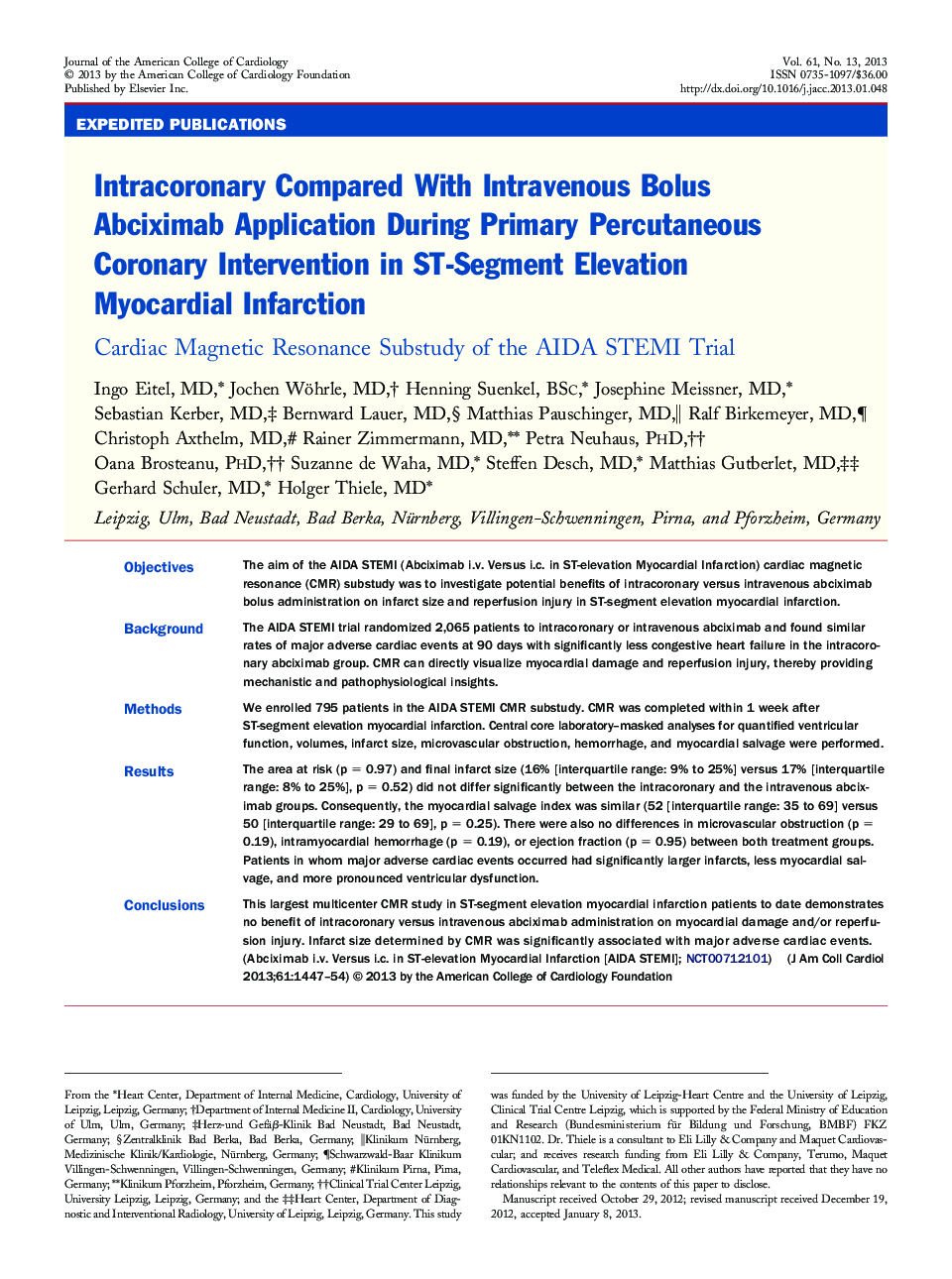| Article ID | Journal | Published Year | Pages | File Type |
|---|---|---|---|---|
| 5983218 | Journal of the American College of Cardiology | 2013 | 8 Pages |
ObjectivesThe aim of the AIDA STEMI (Abciximab i.v. Versus i.c. in ST-elevation Myocardial Infarction) cardiac magnetic resonance (CMR) substudy was to investigate potential benefits of intracoronary versus intravenous abciximab bolus administration on infarct size and reperfusion injury in ST-segment elevation myocardial infarction.BackgroundThe AIDA STEMI trial randomized 2,065 patients to intracoronary or intravenous abciximab and found similar rates of major adverse cardiac events at 90 days with significantly less congestive heart failure in the intracoronary abciximab group. CMR can directly visualize myocardial damage and reperfusion injury, thereby providing mechanistic and pathophysiological insights.MethodsWe enrolled 795 patients in the AIDA STEMI CMR substudy. CMR was completed within 1 week after ST-segment elevation myocardial infarction. Central core laboratory-masked analyses for quantified ventricular function, volumes, infarct size, microvascular obstruction, hemorrhage, and myocardial salvage were performed.ResultsThe area at risk (p = 0.97) and final infarct size (16% [interquartile range: 9% to 25%] versus 17% [interquartile range: 8% to 25%], p = 0.52) did not differ significantly between the intracoronary and the intravenous abciximab groups. Consequently, the myocardial salvage index was similar (52 [interquartile range: 35 to 69] versus 50 [interquartile range: 29 to 69], p = 0.25). There were also no differences in microvascular obstruction (p = 0.19), intramyocardial hemorrhage (p = 0.19), or ejection fraction (p = 0.95) between both treatment groups. Patients in whom major adverse cardiac events occurred had significantly larger infarcts, less myocardial salvage, and more pronounced ventricular dysfunction.ConclusionsThis largest multicenter CMR study in ST-segment elevation myocardial infarction patients to date demonstrates no benefit of intracoronary versus intravenous abciximab administration on myocardial damage and/or reperfusion injury. Infarct size determined by CMR was significantly associated with major adverse cardiac events. (Abciximab i.v. Versus i.c. in ST-elevation Myocardial Infarction [AIDA STEMI]; NCT00712101)
